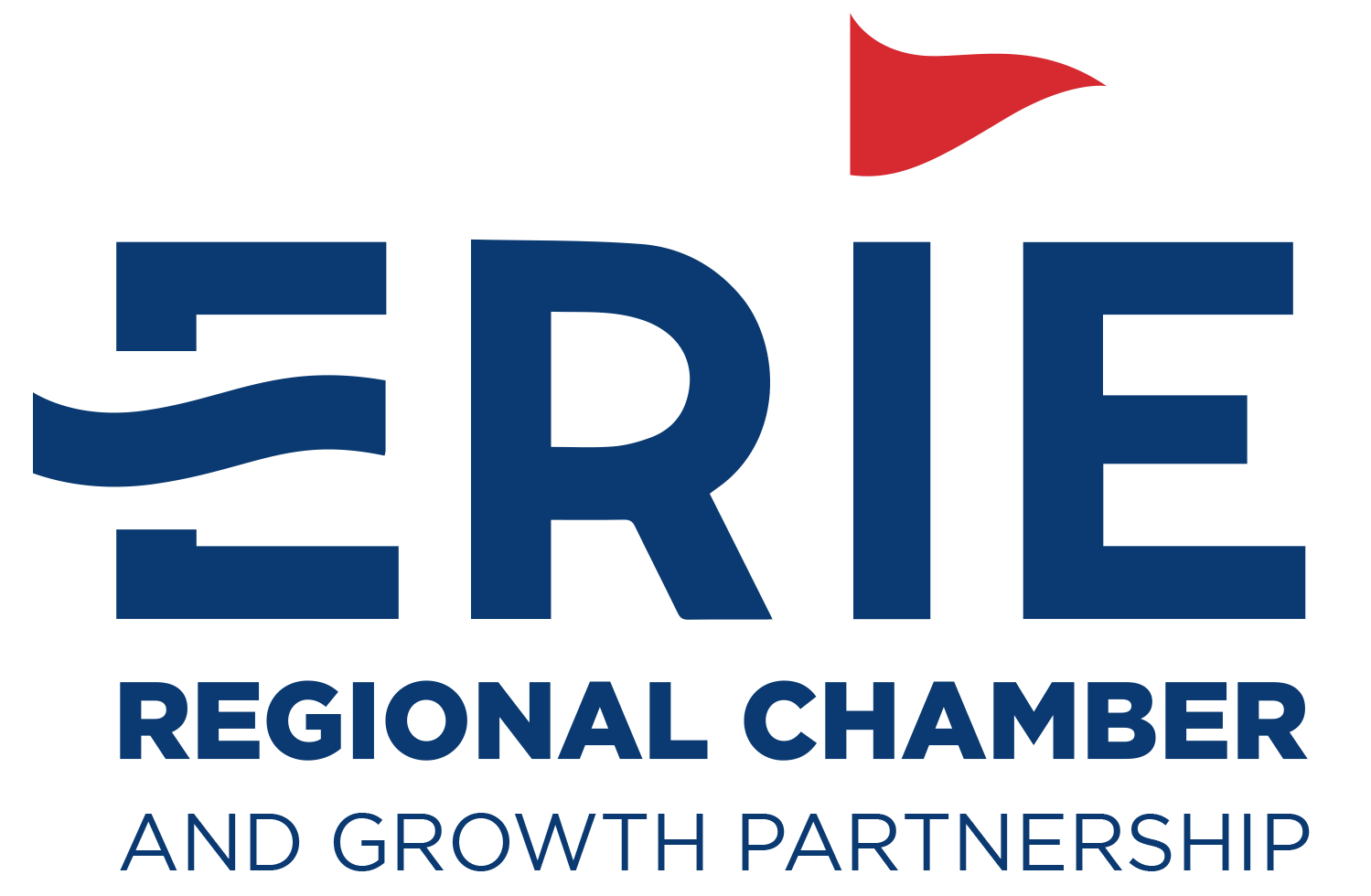Compromise, Reason, and Unity Are Path Forward in Ongoing Disputes at Wabtec
The Erie Regional Chamber and Growth Partnership as well as the PA Chamber of Business and Industry submitted op-eds to the Erie Times-News last week calling for compromise, reason, and unity to end the labor disputes at Wabtec:
Reason and unity’ must guide path to resolution of Wabtec-UE dispute
Erie can no longer afford to ignore the potential aftermath of nonagreement between Wabtec and UE Locals 506 and 618. The consequences of failing to find common ground in this dispute extend far beyond the confines of the factory floor; they threaten the well-being of our entire community and the families of those employed.
As the strike lingers with no progress in sight, it is time to face the unfortunate fact that Wabtec will have to begin making hard decisions regarding which facilities to continue investing in and which facilities will ultimately become dormant. To ignore the looming reality that the Erie plant may not make the cut would be irresponsible and is a conversation that can no longer be ignored.
Let us be clear: The Erie Regional Chamber and Growth Partnership is pro-jobs in Erie — jobs which Wabtec provides and — we hope — will continue growing pending an agreement with UE Locals 506 and 618.
A plant shutdown would lead to an immediate domino effect on local businesses that rely on the patronage of the 1,400 union workers and their families. From small shops and restaurants to service providers and suppliers, the livelihoods of countless other families hang in the balance.
Furthermore, we cannot overlook the wider ramifications that such an impasse could inflict on the local economy. The loss of jobs means fewer people with disposable income to spend on goods and services, leading to a decline in demand and a ripple effect on other businesses and industries. When we conducted an economic impact study during the 2019 strike, our research indicated 6,800 jobs would be impacted or roughly a $400 million economic impact. This chain reaction could ultimately result in a slowdown in economic growth, reduced tax revenues, and budget cuts impacting vital public services and infrastructure. Taken further, each job in theory represents one person working who is likely part of a larger family unit — making the true impact ripple through a conservative estimate of 18,000 citizens or roughly 6% of our population.
The collective prosperity of our community is directly linked to the success and stability of these jobs.
We must not forget that the 1,400 union workers on the picket lines are our neighbors, friends, and family members. Their hard work has made manufacturing the backbone of our community’s legacy. Their determination to fight for better working conditions, fair wages, and a secure future for their families is commendable and should be met with empathy and understanding.
In the same vein, Wabtec is not just a faceless entity but an integral part of our community’s fabric. They have been a vital source of employment for countless individuals, supporting families, and bolstering our local economy. The jobs they provide enable our fellow citizens to put food on the table, pay for their children’s education, and lead fulfilling lives. The potential loss of these jobs would be a devastating blow, sending shock waves through every aspect and industry within our community.
Only through unity and cooperation can we build a stronger, more resilient future for all. The stakes are high, and the consequences of inaction would be dire. The path to reconciliation may not be easy, but it is one we must walk to safeguard the livelihoods of our fellow citizens and the stability of our local economy.
Submitted by the Erie Regional Chamber and Growth Partnership Board of Directors’ Executive Committee: Dr. Chris Clark, chair; Dr. Ralph Ford, Christine Marsh, Phil English, Jim Rutkowski Jr., Bill Speros, Dave Zimmer and Matt Zonno; and James Grunke, president and CEO, of the Erie Regional Chamber and Growth Partnership.
Wabtec Strike Can Be Settled if Both Parties Compromise
When many of Pennsylvania’s business leaders convened in Erie last week for the PA Chamber’s annual board meeting, optimism filled the air. In the 15 years since Erie last played host to the event, the city has undergone a remarkable economic resurgence through partnership and cooperation – a phenomenon that civic and business leaders in the region hope will serve as a model for communities throughout the Commonwealth.
Throughout the week, several of these leaders emphasized the interconnectivity of the local economy – describing it less like a competitive battlefield and more like a delicately-balanced ecosystem. Erie has always been a hardworking, blue-collar town. The city that once boasted a busy port and thriving manufacturing sector is now starting to attract the investment and capital necessary to evolve into a 21st-century hub for innovation and job creation.
However, the ongoing labor strike at Pittsburgh-based locomotive maker Wabtec (which employs 2,400 people in Erie) has prompted the community to consider what would happen if a pillar of the region’s business community were to close its doors.
In any labor dispute, it’s important to understand what each party wants. Wabtec has indicated it wants to manufacture and refurbish locomotives at the century-old Erie plant once owned by General Electric; striking UE workers presumably want to be back on the job, earning paychecks instead of strike pay. And Wabtec’s customers undoubtedly want an intact supply chain and the certainty of knowing when their orders will arrive. Behind the emotions fueling this strike, though, both sides need each other.
Economic planners rely on a concept called job multipliers to assess which industries and professions create or sustain employment in other job sectors. Employers can be considered effective job multipliers to the extent that they generate additional, ‘downstream’ job opportunities.
A recent analysis concluded that Wabtec’s operations in Erie directly sustain employment in the region by a factor of at least five-to-one. When the United Electrical, Radio & Machine Workers of America (UE) struck the plant in 2019, the Erie Regional Chamber and Growth Partnership calculated that 6,800 jobs would be affected by that strike – a $400 million blow to Erie’s economy.
This time around, the implications could be even graver: As Erie continues to navigate the complexities of the post-COVID economy, Wabtec stands as a key manufacturer and economic driver in the region. Anxieties are mounting that a strike-imposed closure of Wabtec’s Erie plant will wreak havoc on the local economy and community.
If that sounds like speculation, consider that when manufacturing boomed in the mid-twentieth century, Erie’s population swelled to nearly 140,000 residents. Shoppers lined the bustling downtown streets, and the community flourished as a result of abundant economic activity.
Today, Erie’s population has declined to 94,000, and the city has an increased level of poverty. To call this moment a turning point is to dramatically understate the case.
It is the nature of negotiations that neither side will be fully satisfied. However, in this case, neither side can afford to walk away from the bargaining table. The impact of a strike-imposed closure on this region, its employers, and its people would be far too devastating an outcome to accept.
Important stakeholders, including current and future customers, are closely monitoring this situation as they consider pressing purchasing decisions. Other stakeholders are also watching closely as they could love to recruit Wabtec to their location, which would be crushing for Erie and Pennsylvania.
Both parties must ask themselves: How long can this strike continue before it spirals into a plant closure?
Both sides should remain at the bargaining table. This strike can be settled, as we have seen with other recent high-profile negotiations, so long as all parties commit to compromise. Wabtec has made it clear that it wants to remain in Erie. Now is the time for these parties to come together in the same spirit of partnership and cooperation that has helped positively transform Erie, to reach an agreement that will safeguard the region’s economic future.
Founded in 1916, the Pennsylvania Chamber of Business and Industry is the state’s largest broad-based business association, with its membership comprising businesses of all sizes and across all industry sectors. The PA Chamber is The Statewide Voice of BusinessTM.



Responses